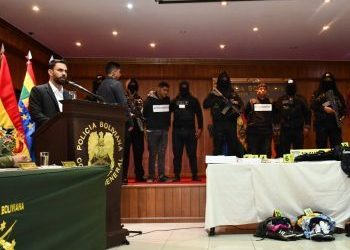#Unitel
Text
Indisponibilidade da rede UNITEL.
A Unitel informa que nos dias 24, 28 e 31 de Julho, e 4, 7 e 11 de Agosto da meia noite a 01 h da manhã, vai realizar trabalhos de melhoria na rede para optimização dos serviços de voz, dados e SMS.
Durante o período em referência, poderá haver alguma perturbação nos referidos serviços, pelo que apresentamos as nossas desculpas pelos transtornos que tal situação possa eventualmente causar.

View On WordPress
0 notes
Text
Duymazlar Endüstriyel Mutfak
endüstriyel mutfak ekipmanları, endüsrtiyel mutfak, buzdolabı imalatı, benmari, küver, evyeli tezgah imalatı, havalandırma davlumbazları, soğuk servis üniteleri, çalışma tezgahları, sıcak servis üniteleri, imalat depoları, kafetarya ekipmanları, pasta teşhir üniteleri
#endustriyel#endustriyelmutfakekipmanlari#mutfak#ekipmanlar#endustriyelmutfak#buzdolabiimalat#buzdolabi#benmari#kuver#evyelitezgah#imalat#havalandirmadavlumbazlari#sogukservis#soguk#servis#uniteler#calisma#calismatezgahi#sicakservis#imalatdepolari#kafetarya#kafetaryaekipmanlari#pasta#pastateshiruniteleri
0 notes
Text
So cute :33
Cre : Unitell TV on Youtube
#identity v#funny moments#naib subedar#idv naib#identity v naib#naib idv#jack the ripper#jack idv#identity v jack#idv jack#jacknaib
154 notes
·
View notes
Text
Best eSIM Laos provides the most suitable mobile data packages for tourists and travelers in Laos.
Best eSIM Laos provides the most suitable mobile data packages for tourists and travelers in Laos. All our mobile data packages use the 4G/5G network of Unitel / Star Telecom - one of the two largest mobile network operators in Laos. This service offers unlimited mobile data connection in Laos, allowing you to receive a QR code and activate it instantly without any registration or subscription. You can keep your WhatsApp number on your mobile phone and easily add more packages after the initial package expires. This service must be activated in Laos and starts from the first use. It includes a Laos phone number for receiving calls, messages, and app registrations. Our 24/7 customer service in English helps you forget about roaming or searching for public WiFi networks.
2 notes
·
View notes
Text
Angola seized the shares from Isabel dos Santos[...], daughter of a deposed president, and Leopoldino Fragoso do Nascimento, a former general in José Eduardo dos Santos’s government.
The current government, which took over after President dos Santos was replaced, already owned 50% of Unitel through the public company Sonangol.
According to the Ecofin news agency, the current president, João Lourenço, nationalised Unitel by appropriating the shares of Isabel dos Santos and of Nascimento, who each held 25% of the company’s capital via intermediary companies.
Both Isabel dos Santos – once described by Forbes magazine as the richest woman in Africa – and Nascimento have had their assets blocked by the US.
In January 2020, Angola charged Dos Santos with embezzlement and money laundering and froze her assets. She denied the charges. [...]
Isabel dos Santos continues to face legal action in an anti-corruption campaign launched in 2017 by Lourenço. Her father died in July 2022.
Lourenço said the nationalisation of Angola’s main telecom operator aims to guarantee the taking of “decisions necessary for the continuity of the business through a more efficient, transparent management model aligned with the strategic interest represented by the company”.
1 Nov 22
8 notes
·
View notes
Video
youtube
Puto Português no palco do Show da Virada 2020 by Unitel
2 notes
·
View notes
Text

In early April, police officers in Oruro, eastern Bolivia, received a tip that a group of men were going to pick up weapons and ammunition from a home in the city.
They stopped four Venezuelans, one of them a minor, armed with guns and grenades. The group threatened the officers, warning them they were members of Tren de Aragua – a notorious Venezuelan criminal group that has swept across South America. The men were eventually arrested, and the three adults later paraded in front of the press.
It was a red flag for Bolivia – the most publicized appearance of alleged members of the Venezuelan group to date in the South American country. Police are now searching for others linked to those arrests, and the state’s prosecutor said he has not ruled out that Tren de Aragua may also be connected to the murder of a Venezuelan whose body was discovered inside a suitcase in Oruro on January 9, according to Bolivian media outlet Opinión.
Anfang April erhielten Polizeibeamte in Oruro im Osten Boliviens den Hinweis, dass eine Gruppe Männer Waffen und Munition aus einem Haus in der Stadt holen wollte.
Sie stoppten vier Venezolaner, einer von ihnen minderjährig, bewaffnet mit Waffen und Granaten. Die Gruppe bedrohte die Beamten und warnte sie, sie seien Mitglieder von Tren de Aragua – einer berüchtigten venezolanischen kriminellen Gruppe, die über ganz Südamerika verbreitet ist. Die Männer wurden schließlich festgenommen, die drei Erwachsenen standen später vor der Presse.
Es war ein Warnsignal für Bolivien – der bisher am meisten beachtete Auftritt mutmaßlicher Mitglieder der venezolanischen Gruppe in dem südamerikanischen Land. Die Polizei sucht nun nach weiteren Personen, die mit diesen Festnahmen in Verbindung stehen, und der Staatsanwalt sagte, er habe nicht ausgeschlossen, dass Tren de Aragua auch mit der Ermordung eines Venezolaners in Verbindung stehen könnte, dessen Leiche am 9. Januar in Oruro in einem Koffer entdeckt wurde Meinung des bolivianischen Medienunternehmens.
But not all officials agreed. The vice minister of the interior and police denied Tren de Aragua was operating in Bolivia in an interview with national news broadcaster Unitel, cited by Brújula Digital. Eduardo Del Castillo, the government minister who announced the arrests, also seemed to backtrack in a press conference reported in El Deber the following week, refusing to comment on the presence of a “transnational criminal group” in the country.
The Bolivian authorities’ conflicting stances reflect those of officials across the Americas. Some governments – including those of the United States, Chile, and Peru – consider the gang a major security threat. Other countries are more skeptical. In Venezuela, the foreign minister recently claimed Tren de Aragua was a media creation, before backtracking.
Below, looks at why governments in the Americas tend to disagree on the threat posed by Tren de Aragua.
Aber nicht alle Beamten stimmten zu. Der Vizeminister für Inneres und Polizei bestritt in einem von Brújula Digital zitierten Interview mit dem nationalen Nachrichtensender Unitel, dass Tren de Aragua in Bolivien tätig sei. Eduardo Del Castillo, der Regierungsminister, der die Verhaftungen ankündigte, schien in einer Pressekonferenz, über die in El Deber in der darauffolgenden Woche berichtet wurde, ebenfalls einen Rückzieher zu machen und weigerte sich, sich zur Präsenz einer „transnationalen kriminellen Gruppe“ im Land zu äußern.
Die widersprüchlichen Standpunkte der bolivianischen Behörden spiegeln die von Beamten auf dem gesamten amerikanischen Kontinent wider. Einige Regierungen – darunter die der Vereinigten Staaten, Chiles und Perus – betrachten die Bande als große Sicherheitsbedrohung. Andere Länder sind skeptischer. In Venezuela behauptete der Außenminister kürzlich, Tren de Aragua sei eine Medienkreation, bevor er einen Rückzieher machte.
Im Folgenden wird erläutert, warum die Regierungen in Amerika hinsichtlich der Bedrohung durch Tren de Aragua tendenziell unterschiedlicher Meinung sind.
Tren de Aragua’s ‘Criminal Brand’ Complicates Identification
Tren de Aragua came to prominence as a gang whose leadership operated from Tocorón prison in the Venezuelan state of Aragua.
The group later expanded beyond Venezuela’s borders, taking advantage of the exodus of migrants fleeing the country’s economic and security crises from the mid-2010s onward. Tren de Aragua’s criminal economies now include human trafficking, extortion, and small-scale drug trafficking.
Though the group has a significant presence in Chile, Peru, and Colombia, many of its cells bear distinct names without reference to the wider organization. This may help Tren de Aragua fly under the radar in countries getting to grips with the gang.
In Peru and Chile, factions of the group operate under names such as the Gallegos, the Hijos de Dios, and Dinastía Alayón, making it difficult for law enforcement to correctly identify which groups are connected to Tren de Aragua.
Die „kriminelle Marke“ von Tren de Aragua erschwert die Identifizierung
Tren de Aragua erlangte Berühmtheit als Bande, deren Führung vom Tocorón-Gefängnis im venezolanischen Bundesstaat Aragua aus operierte.
Später expandierte die Gruppe über die Grenzen Venezuelas hinaus und nutzte den Exodus von Migranten, die ab Mitte der 2010er Jahre vor der Wirtschafts- und Sicherheitskrise des Landes flohen. Zu den kriminellen Wirtschaftszweigen von Tren de Aragua zählen heute Menschenhandel, Erpressung und kleiner Drogenhandel.
Obwohl die Gruppe in Chile, Peru und Kolumbien stark vertreten ist, tragen viele ihrer Zellen unterschiedliche Namen ohne Bezug zur größeren Organisation. Dies könnte dazu beitragen, dass Tren de Aragua in Ländern, in denen es um die Bekämpfung der Bande geht, unter dem Radar bleibt.
In Peru und Chile agieren Fraktionen der Gruppe unter Namen wie Gallegos, Hijos de Dios und Dinastía Alayón, was es für die Strafverfolgungsbehörden schwierig macht, korrekt zu identifizieren, welche Gruppen mit Tren de Aragua in Verbindung stehen.
The confusion is clear. While the head of the Peruvian police’s homicide investigation division, Ricardo Sabino Espinoza Cuentas, told that Dinastía Alayón is a separate Venezuelan criminal group, other sources within the police and Attorney General’s Office insisted it is part of Tren de Aragua.
Tren de Aragua’s formidable reputation also plays a part. The gang’s fear campaigns, characterized by deliberate projections of violence – including the disposal of dismembered bodies on street corners and videos of murders – have given Tren de Aragua a “criminal brand” that imposters have sought to capitalize on. Pretenders falsely claiming to be members of the group to inspire fear and guarantee compliance from victims have further complicated law enforcement’s efforts to correctly identify genuine Tren de Aragua cells in Peru, Chile, and Colombia.
Additionally, the group’s factions across the continent appear to operate with a high degree of autonomy, meaning even successful efforts to tackle one cell will not necessarily impact or lead to the discovery of another.
Die Verwirrung ist klar. Während der Leiter der Mordermittlungsabteilung der peruanischen Polizei, Ricardo Sabino Espinoza Cuentas, erklärte, dass es sich bei Dinastía Alayón um eine eigenständige venezolanische kriminelle Gruppe handele, bestanden andere Quellen innerhalb der Polizei und der Generalstaatsanwaltschaft darauf, dass sie Teil von Tren de Aragua sei.
Auch der hervorragende Ruf von Tren de Aragua spielt eine Rolle. Die Angstkampagnen der Bande, die durch bewusste Gewaltprojektionen gekennzeichnet sind – einschließlich der Entsorgung zerstückelter Leichen an Straßenecken und Videos von Morden – haben Tren de Aragua einen „kriminellen Ruf“ verliehen, aus dem Betrüger Kapital schlagen wollten. Betrüger, die fälschlicherweise behaupten, Mitglieder der Gruppe zu sein, um Angst zu schüren und den Opfern die Einhaltung zu garantieren, erschweren die Bemühungen der Strafverfolgungsbehörden, echte Tren de Aragua-Zellen in Peru, Chile und Kolumbien korrekt zu identifizieren.
Darüber hinaus scheinen die Fraktionen der Gruppe auf dem gesamten Kontinent mit einem hohen Maß an Autonomie zu operieren, was bedeutet, dass selbst erfolgreiche Bemühungen, eine Zelle in Angriff zu nehmen, nicht unbedingt Auswirkungen auf die Entdeckung einer anderen haben oder zur Entdeckung einer anderen führen werden.
Political Lines
In Venezuela, a lack of transparency and cooperation on the part of national authorities has made it more difficult for law enforcement abroad to identify members of the group. The Venezuelan government’s official stance on the gang remains inconsistent.
Venezuela’s foreign minister, Yván Gil, claimed that Tren de Aragua was a “fiction created by the international media” in a press conference on April 8, drawing condemnation from his counterparts in Chile and Peru.
Gil backtracked four days later, saying his country’s police forces had “ended Tren de Aragua in Venezuela,” and promised to assist Chile in tackling organized crime.
Gil’s statement appears to have inspired Bolivia’s government minister Eduardo Del Castillo to reverse his own stance on Tren de Aragua’s presence there, referencing the fact Venezuelan authorities had insisted they had dismantled the group and saying he could not discuss it further.
The Bolivian government enjoys a far more amicable relationship with its Venezuelan counterpart than it does with other neighbors in the region. And the Bolivian government’s stance toward the gang appears to be politically motivated rather than based on evidence, according to Iván Paredes, a journalist specializing in transnational crime who has been covering Tren de Aragua in Bolivia since 2022.
Politische Linien
In Venezuela ist es für Strafverfolgungsbehörden im Ausland aufgrund mangelnder Transparenz und Zusammenarbeit seitens der nationalen Behörden schwieriger, Mitglieder der Gruppe zu identifizieren. Die offizielle Haltung der venezolanischen Regierung gegenüber der Bande bleibt uneinheitlich.
Venezuelas Außenminister Yván Gil behauptete in einer Pressekonferenz am 8. April, dass Tren de Aragua eine „von den internationalen Medien geschaffene Fiktion“ sei, was bei seinen Amtskollegen in Chile und Peru scharfe Kritik hervorrief.
Vier Tage später machte Gil einen Rückzieher und sagte, die Polizei seines Landes habe „Tren de Aragua in Venezuela beendet“ und versprach, Chile bei der Bekämpfung der organisierten Kriminalität zu unterstützen.
Gils Aussage scheint den bolivianischen Regierungsminister Eduardo Del Castillo dazu inspiriert zu haben, seine eigene Haltung zur Anwesenheit von Tren de Aragua dort zu ändern. Er verwies auf die Tatsache, dass die venezolanischen Behörden darauf bestanden hätten, die Gruppe aufgelöst zu haben, und sagte, er könne nicht weiter darüber diskutieren.
Die bolivianische Regierung unterhält zu ihrem venezolanischen Amtskollegen weitaus freundschaftlichere Beziehungen als zu anderen Nachbarn in der Region. Und die Haltung der bolivianischen Regierung gegenüber der Bande scheint eher politisch motiviert als auf Beweisen zu beruhen, so Iván Paredes, ein auf grenzüberschreitende Kriminalität spezialisierter Journalist, der seit 2022 über Tren de Aragua in Bolivien berichtet.
“It is the political line they follow, the governments of Bolivia and Venezuela,” he told . “But I had contact with some police officers a year-and-a-half ago when we were investigating this group. They told me that this mafia does exist.”
He said its presence was most notable near Pisiga, a city along Chile’s northern border with Bolivia.
Paredes’ assertion coincides with reports of Tren de Aragua’s presence in the south of Bolivia since at least June 2022, where it is allegedly operating a migrant smuggling and drug trafficking route between Peru and Chile.
„Es ist die politische Linie, die sie verfolgen, die Regierungen Boliviens und Venezuelas“, sagte er. „Aber ich hatte vor anderthalb Jahren Kontakt zu einigen Polizisten, als wir gegen diese Gruppe ermittelten. „Sie sagten mir, dass diese Mafia existiert.“
Er sagte, seine Anwesenheit sei am bemerkenswertesten in der Nähe von Pisiga, einer Stadt an der Nordgrenze Chiles zu Bolivien.
Die Behauptung von Paredes deckt sich mit Berichten über die Präsenz von Tren de Aragua im Süden Boliviens seit mindestens Juni 2022, wo das Unternehmen angeblich eine Route zum Migrantenschmuggel und Drogenhandel zwischen Peru und Chile betreibt.
Overestimating Tren de Aragua’s Strength
International relations and local politics may have also played a role in the United States’ response toward Tren de Aragua. Tensions are running high between the United States and Venezuela amid a wave of political repression on the part of Venezuelan President Nicolás Maduro, and the US presidential campaign has begun.
Some US lawmakers have called to designate Tren de Aragua a transnational criminal group, despite shaky evidence of any significant presence in the United States, and a low likelihood of significant expansion there. The stance allows some lawmakers to justify a tough-on-crime approach behind the crackdown on immigration, as the number of Venezuelans entering the United States has skyrocketed in recent years.
Yet overstating the gang’s presence risks allowing law enforcement across the region to mislabel Venezuelan criminals as Tren de Aragua members, potentially obscuring any investigations into the group.
Portraying the group as a greater transnational threat could also inspire copycats to piggyback on a criminal brand that has gained strength thanks to national media attention.
Überschätzung der Stärke von Tren de Aragua
Internationale Beziehungen und lokale Politik könnten auch eine Rolle bei der Reaktion der Vereinigten Staaten auf Tren de Aragua gespielt haben. Die Spannungen zwischen den Vereinigten Staaten und Venezuela sind angesichts einer Welle politischer Repression seitens des venezolanischen Präsidenten Nicolás Maduro hoch, und der US-Präsidentschaftswahlkampf hat begonnen.
Einige US-Gesetzgeber haben gefordert, Tren de Aragua als transnationale kriminelle Gruppe einzustufen, obwohl es unsichere Beweise für eine nennenswerte Präsenz in den Vereinigten Staaten gibt und die Wahrscheinlichkeit einer nennenswerten Expansion dort gering ist. Diese Haltung ermöglicht es einigen Gesetzen, einen härteren Ansatz bei der Bekämpfung der Einwanderung zu rechtfertigen, da die Zahl der Venezolaner, die in die Vereinigten Staaten einreisen, in den letzten Jahren sprunghaft angestiegen ist.
Wenn man jedoch die Präsenz der Bande überbewertet, besteht die Gefahr, dass die Strafverfolgungsbehörden in der gesamten Region venezolanische Kriminelle fälschlicherweise als Tren de Aragua-Mitglieder bezeichnen, was möglicherweise jegliche Ermittlungen gegen die Gruppe verschleiern könnte.
Die Darstellung der Gruppe als größere transnationale Bedrohung könnte auch Nachahmer dazu inspirieren, sich einer kriminellen Marke anzuschließen, die dank der Aufmerksamkeit der nationalen Medien an Stärke gewonnen hat.
Featured image: Bolivian government minister Eduardo Del Castillo presents alleged Tren de Aragua members at a press conference.
Ausgewähltes Bild: Der bolivianische Regierungsminister Eduardo Del Castillo stellt auf einer Pressekonferenz mutmaßliche Tren de Aragua-Mitglieder vor.
0 notes
Text

Isabel Dos Santos (born April 20, 1973) is the youngest billionaire on the African continent and the only woman in that category. Most of her fortune has come from owning various stakes in cement, diamond, oil, and telecommunications corporations which she derived from her father, Jose Eduardo Dos Santos, the longtime president of Angola.
She was born to Tatiana Kukanova and Jose Eduardo Dos Santos in Baku, Azerbaijan. She is the oldest daughter of the couple. When Angola gained its independence from Portugal, her family returned and she first attended public school in the capital, Luanda.
Her father became president and he divorced her mother who took her to London where she received an education at St. Paul’s public school. She studied Business Management and Electrical Engineering at King’s College London.
In her first business venture, she became a partner in a Luanda restaurant called Miami Beach. Her first venture that would generate significant wealth came when she created Trans-Atlantic Investment Services. The company obtained a 24.5 percent stake in a diamond marketing partnership that sold African diamonds around the world.
Her father granted Unitel, a Netherlands-based international telecommunications company, the right to become the first mobile telephone company to operate in Angola. She received a 25 percent stake in the company.
She formed a partnership with Fernando Teles. They opened Banco Internacional de Credito. She owned 25 percent of the bank. She acquired a 7 percent stake in Galp Energia and nearly 19 percent of Banco BPI. She is a controlling shareholder of the Portuguese cable TV and telecom firm, Nos SGPS. She became part owner of the Portuguese electric power equipment firm, Efacec Power Solutions. She has stakes in supermarkets and cement companies. The British Broadcasting Corporation named her one of the 100 Most Influential Women in the World.
She married Sindika Dokolo (2003) a Congolese art collector. They have three children and divide their time between Luanda, London, Lisbon (Spain), and Johannesburg (South Africa). #africanhistory365 #africanexcellence
0 notes
Text
Unitelle: Your Go-To Destination for Budget-Friendly Tech in the UAE!
Unitelle emerges as the quintessential destination for acquiring pre-owned iPhones in the UAE, coupling affordability with reliability. With enticing discounts of up to 50% off, Unitelle ensures that customers can access high-quality devices at unbeatable prices. Boasting a seamless online shopping experience, Unitelle not only prioritizes affordability but also offers free and swift delivery across the UAE. Each used iPhone undergoes meticulous testing and certification by seasoned experts, guaranteeing both functionality and peace of mind for buyers. With its commitment to quality assurance and affordability, Unitelle stands as the premier choice for those seeking cost-effective yet dependable iPhone purchases in the UAE.
0 notes
Text


Unitel Voice - $24.99 - Charged - Florida - Federal
Tax - Illegal - so - Total - $37.50 - monthly - Today
eVOICE - Cheaper - and - 3 phone numbers
included - checking - out - Almost - 2P EST
Zoho Mail
24 hrs - Tech - India - couldn't - give - New
Smartphone Tel - for - security - purposes
so - just - emailed - Mon - Friday - no less
New - Mobile Tel
New - Domain - Name
New - Email - Address - Requesting
No one else - but - Zoho Mail - so Sad
eVOICE - doesn't - include - tax fees
for - my - view - adding - them
tomorrow - calling - first
(877) 581-5789
They - said - adding - taxes - fees
but - doesn't - say - how - much
order - pages - so - waiting until
tomorrow - these people - tricky
1 note
·
View note
Text
Unitel une Matias Damásio, Noite e Dia , C4 Pedro, Anna Joyce, Biura, Prodígio, Criam Hino Poderoso dos Palancas Negras
Unitel une Matias Damásio, Noite e Dia , C4 Pedro, Anna Joyce, Biura, Prodígio, Criam Hino Poderoso dos Palancas Negras
Acompanhar aqui:
Hino Poderoso dos Palancas Negras para a CAN 2023 Criado por Estrelas da Música Angolana Unitel
Numa colaboração única e emocionante, renomados artistas da música angolana uniram forças para criar o novo hino dos Palancas Negras, que brilham intensamente na CAN 2023 uma oferta da Unitel. Matias Damásio, C4 Pedro, Anna Joyce, Biura, Prodígio, Noite e Dia são os talentosos artistas por trás dessa…

View On WordPress
0 notes
Text
Unitel lança campanha com descontos na compra de produtos nas suas Lojas
A operadora angolana Unitel, lançou recentemente uma campanha vantajosa para os clientes “Unitel Money”, que visa atribuir descontos na compra de produtos nas suas Lojas, uma iniciativa que teve início no dia 27 de Junho, e é válida até ao dia 08 de Julho do ano em curso.
Na compra de um telemóvel, headphones ou mesmo uma recarga, o cliente pode pagar via Unitel Money e beneficia automaticamente…

View On WordPress
0 notes
Text
Cellecor Gadgets Limited Announces Board Decision on NCD Issuance
In a recent development, Cellecor Gadgets Limited (Formerly Known as Unitel Info Limited and Unitel Info Private Limited) has disclosed the outcome of its Board Meeting held on Thursday, January 18, 2024. The meeting, which commenced at 09:00 A.M. and concluded at 09:30 A.M. at the company's Registered Office, focused on crucial decisions by Regulation 30 of SEBI (Listing Obligations and Disclosure Requirements) Regulations, 2015.
The Board of Directors, led by Nikhil Aggarwal, the Whole-time Director, deliberated on various matters and formally approved the issuance of Unlisted, Secured, Redeemable, Partly Paid, Non-Convertible Debentures (NCDs) under a Private Placement basis. The approved issuance is set to reach a total value of Rs. 10,20,00,000 (Rupees Ten Crores and Twenty Lakhs only).
The company has provided all necessary information per the SEBI (Listing Obligations and Disclosure Requirements) Regulations, 2015 to comply with the regulatory requirements. This information, detailed in "Annexure-I," includes specifics on the type of securities, the issuance method (Private Placement), and the total number of securities proposed for issuance.
Key details from "Annexure-I" include:
Type of securities: Unlisted, Secured, Redeemable, Partly Paid, Non-Convertible Debentures.
Type of issuance: Private Placement.
Total number of securities: 1020 NCDs of Rs. 1,00,000/- each, amounting to Rs. 10,20,00,000/-.
Size of the issue: Rs. 10,20,00,000/-.
Listing status: Not proposed for listing.
The tenure of the instrument is outlined, with the date of allotment deemed to be January 18, 2024, and the date of maturity set at 13 months from the date of allotment. The NCDs will bear a fixed coupon of 16% annually, payable monthly.
To secure the issuance, the company has established a First Pari-Passu charge over current assets, intangible assets (IP, Brand, etc.), and personal guarantees from Ravi Agarwal and Nikhil Aggarwal. Additionally, the company has arranged a No Objection Certificate (NOC) from the existing lender.
0 notes
Text
Isabel dos Santos, an Angolan billionaire and the daughter of a former Angolan president, lost a legal battle in London's high court to prevent the freezing of about $734 million (£580m) of her assets.
Unitel, an Angolan telecom giant, claims Dos Santos used company funds for personal gain while serving as director, leaving millions in unpaid loans. Dos Santos vehemently denies the accusations, calling it a political vendetta fueled by Angola's current president.
Despite frozen assets in other countries, the court deemed an additional freeze necessary, requiring further asset disclosure from Dos Santos by January.
0 notes
Text
How Angolan Billionaire Isabel dos Santos lost £580m London case

Angolan billionaire Isabel dos Santos has lost a legal battle in London against an application to freeze up to £580m ($735m) of her assets.
Angolan telecoms operator Unitel is suing her over loans made to Dutch company Unitel International Holdings (UIH) in 2012 and 2013, when Dos Santos was a director of Unitel.
The loans were not repaid and around £300m (£240) is outstanding, according to Unitel.
Ms Dos Santos's late father, Jose Eduardo dos Santos, ruled Angola for 38 years until 2017.
Unitel asked London's High Court to grant a worldwide freezing order over her assets last month. Judge Robert Bright granted the order on Wednesday.
Ms Dos Santos has responded to Unitel's allegations by saying she is the victim of a "campaign of oppression" by Angola's government.
She also says Unitel is itself responsible for UIH's inability to repay the loans because of its alleged role in Angola's unlawful seizure of UIH's assets.
Read the full article
0 notes